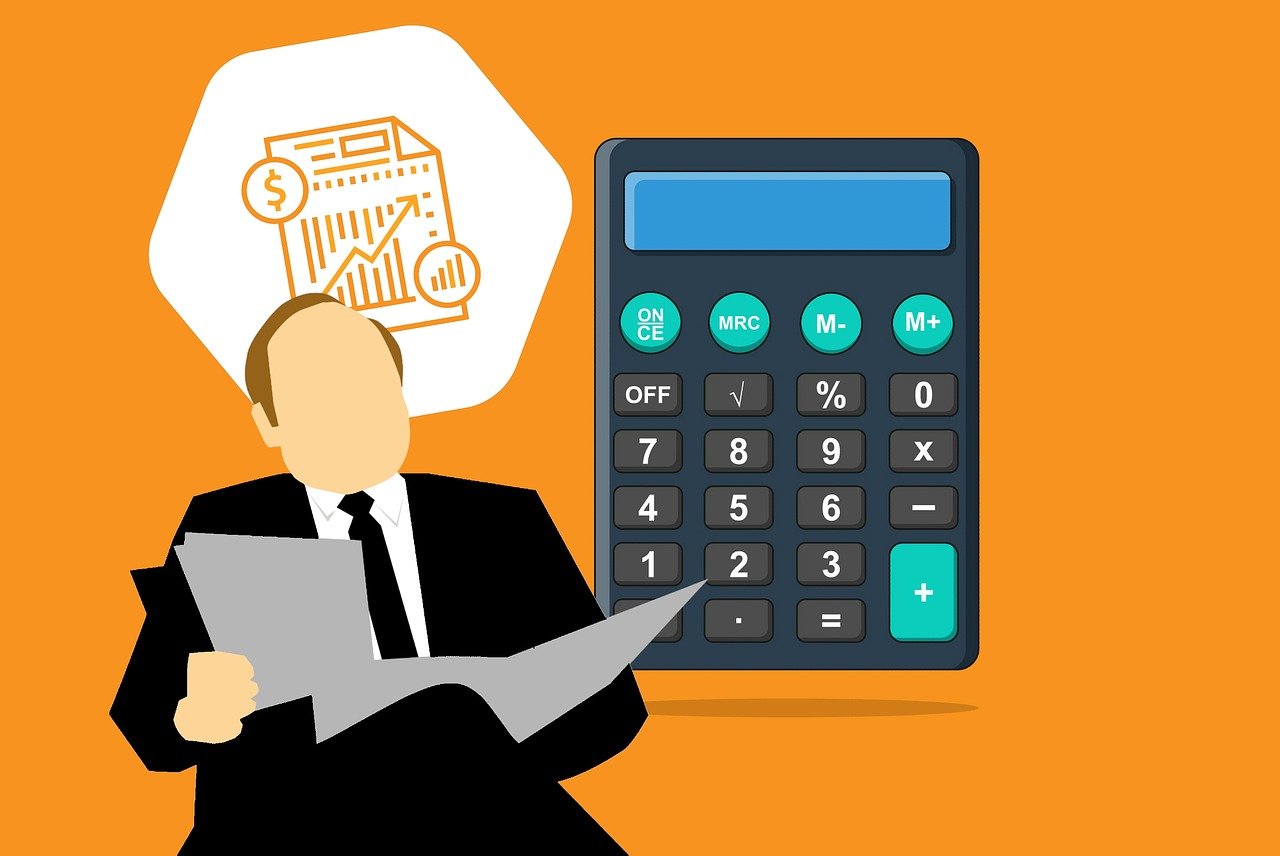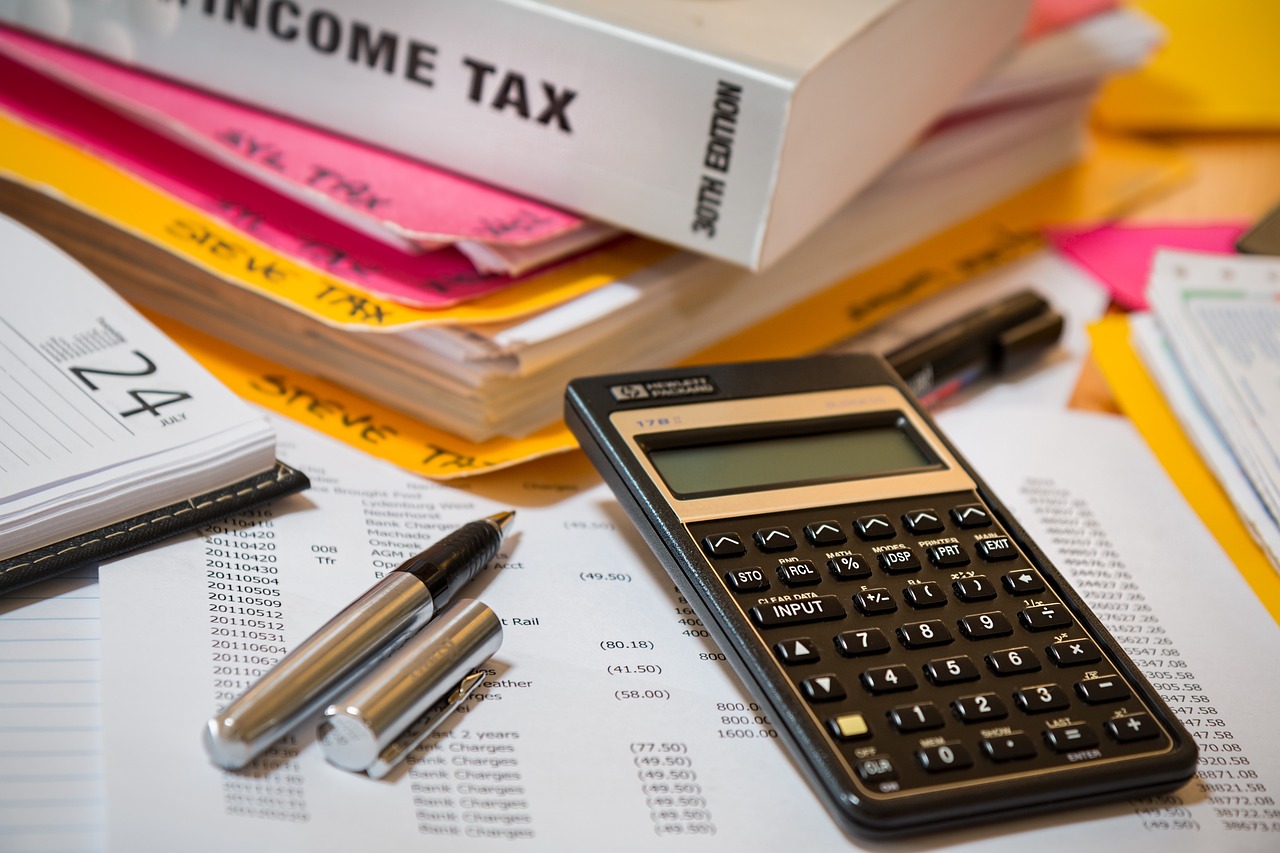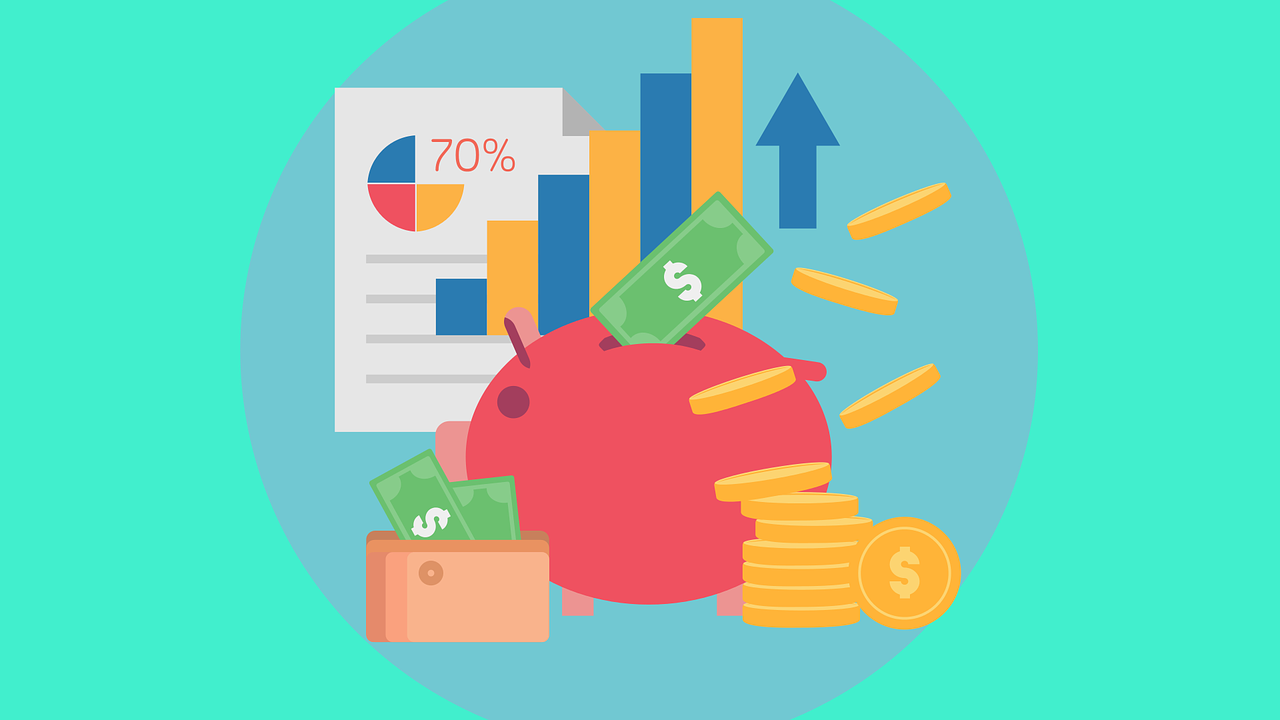Managing your finances can be a challenge, especially when your income is variable or unpredictable. You may find yourself wondering how to effectively budget and make financial decisions in such uncertain circumstances. In this article, we will explore practical strategies and tips to help you navigate the complexities of budgeting when faced with irregular income. By implementing these methods, you can gain a sense of control over your finances and confidently plan for the future.

Tracking Expenses
Categorizing expenses
When it comes to budgeting, one of the first steps is to track your expenses. By categorizing your expenses, you can gain a better understanding of where your money is going. Take the time to divide your expenses into different categories such as housing, transportation, groceries, entertainment, and other necessary expenses. This will allow you to see how much you are spending in each area and identify areas where you may need to cut back.
Recording daily expenses
To effectively track your expenses, it’s important to record your daily expenses. This can be done in a variety of ways, such as using a notebook, spreadsheet, or even a budgeting app. Make it a habit to record every expense, no matter how small. This way, you can have a clear picture of your spending habits and make any necessary adjustments to your budget.
Tracking irregular expenses
In addition to your regular monthly expenses, it’s important to account for irregular expenses. These expenses may occur infrequently but can significantly impact your budget. Consider expenses such as annual memberships, car repairs, or medical bills. By tracking and planning for these irregular expenses, you can avoid any financial surprises and ensure that you have the funds available when you need them.
Creating a Budget Template
Estimating monthly income
When creating a budget template, it’s important to start with estimating your monthly income. However, when your income is variable or unpredictable, this can be a bit challenging. Take a look at your income trends over the past few months and determine a baseline income. This will provide you with a starting point for your budget and help you make more accurate financial projections.
Allocating fixed expenses
Fixed expenses are the recurring costs that you have every month and typically remain consistent. These may include your rent or mortgage payment, utilities, insurance premiums, and loan payments. When creating your budget template, allocate a specific portion of your income to cover these fixed expenses. This will ensure that you prioritize these essential payments and have enough funds set aside to cover them.
Budgeting for variable expenses
Variable expenses are the costs that fluctuate from month to month, such as groceries, transportation, and entertainment. When your income is variable, it’s important to allocate a portion of your budget for these expenses while allowing some flexibility. Start by estimating an average amount for each variable expense category based on your past spending habits. As your income fluctuates, adjust these amounts accordingly to ensure that you stay within your budget.
Building an Emergency Fund
Determining the ideal emergency fund size
Building an emergency fund is essential for financial stability, especially when you have a variable income. Determine the ideal size for your emergency fund by considering your monthly expenses and financial obligations. It is generally recommended to have three to six months’ worth of living expenses saved in your emergency fund. However, if your income is more volatile, it may be wise to aim for a larger fund to provide a greater safety net.
Regular contributions to the emergency fund
To build your emergency fund, make it a priority to make regular contributions. Treat this as a necessary expense, similar to a bill payment. Determine an amount that you can comfortably set aside each month and make it a non-negotiable part of your budget. Automating your savings can help ensure that you consistently contribute to your emergency fund, even during months when your income may be lower than usual.
Using the emergency fund wisely
While building an emergency fund is important, it’s equally important to use it wisely. Only dip into your emergency fund for true emergencies, such as unexpected medical expenses or a job loss. Avoid using it for discretionary expenses or non-essential purchases. By using your emergency fund responsibly, you can have peace of mind knowing that it’s there to support you during times of financial uncertainty.
Prioritizing Essential Expenses
Identifying essential expenses
When your income is variable or unpredictable, it’s crucial to prioritize your essential expenses. These are the expenses that are necessary for your basic needs, such as housing, utilities, food, and transportation. Take the time to evaluate your expenses and determine which ones are essential for your well-being and daily functioning. By prioritizing these expenses, you can ensure that they are covered even during months when your income may be lower than expected.
Ranking essential expenses
Not all essential expenses are created equal. Some may be more crucial than others, depending on your individual circumstances. Take the time to rank your essential expenses in order of importance. For example, paying your rent or mortgage should be a higher priority than discretionary expenses like eating out or entertainment. By ranking your expenses, you can allocate your limited funds to the most crucial areas and make more informed financial decisions.
Cutting back on non-essential expenses
When your income is variable, it’s essential to cut back on non-essential expenses to adjust to fluctuations in your income. This may mean making temporary sacrifices or finding creative ways to save money. Look for opportunities to trim unnecessary expenses such as subscription services, eating out, or entertainment. Consider alternative, more cost-effective options to meet your wants or find free activities that you can enjoy. By cutting back on non-essential expenses, you can free up more funds for your essential needs and build financial stability.

Creating a Variable Income Budget
Determining a baseline income
Creating a budget with a variable income requires establishing a baseline income. Review your income history to determine the lowest amount you have earned in recent months. This will serve as your baseline income for budgeting purposes. By using this conservative estimate, you can ensure that your budget remains realistic even during periods of lower income.
Adjusting the budget with fluctuations
To accommodate for income fluctuations, it’s important to be flexible with your budget. When you have a month with higher income, consider allocating some of that surplus towards savings or paying down debt. On the other hand, when your income is lower than expected, be prepared to make adjustments and cut back on non-essential expenses. Regularly review and adjust your budget to align with your current income and financial goals.
Creating multiple income scenarios
Since your income is variable, it can be helpful to create multiple income scenarios when budgeting. Take the time to work through different income possibilities, such as a low-income scenario, a moderate-income scenario, and a higher-income scenario. By doing so, you can be prepared for different financial circumstances and have a plan in place to manage your expenses accordingly. This approach allows for greater flexibility and adaptability in your budgeting process.
Using the Envelope System
Assigning envelopes to different expense categories
The envelope system is a popular method for budgeting and managing expenses. It involves assigning envelopes to different expense categories and allocating cash into each envelope based on your budgeted amounts. This provides a tangible representation of your spending limits and helps you avoid overspending in each category. Label each envelope with the corresponding expense category, such as groceries, transportation, or entertainment.
Placing cash into envelopes
Once you have assigned envelopes to your expense categories, it’s time to place cash into each envelope. Take the amount of cash that you have budgeted for each category and distribute it accordingly. For example, if you have allocated $200 for groceries, place $200 in the envelope labeled “groceries.” This method ensures that you can physically see how much money you have remaining in each category and helps you make more mindful spending decisions.
Using envelope balances for decision-making
Throughout the month, use the balances in your envelopes as a guide for your spending decisions. Before making a purchase, check the corresponding envelope balance to see if you have enough funds available. This will help you prioritize your spending and avoid overspending in any single category. If you find that you are running low on funds in a particular envelope, it may be a signal to reassess your spending habits and make adjustments to your budget.

Setting Realistic Financial Goals
Identifying short-term and long-term goals
Setting financial goals is crucial for maintaining focus and motivation in your budgeting journey. Take the time to identify both short-term and long-term goals that align with your financial priorities. Short-term goals may include paying off credit card debt, saving for a vacation, or building an emergency fund. Long-term goals could involve saving for retirement, purchasing a home, or funding your children’s education. Having a clear vision of your goals will help you make informed financial decisions and stay on track.
Breaking goals into manageable steps
Once you have set your financial goals, it’s important to break them down into manageable steps. This makes your goals more attainable and allows you to track your progress along the way. For example, if your goal is to pay off credit card debt, break it down into smaller monthly payment targets. By dividing your goals into smaller steps, you can celebrate milestones and stay motivated as you work towards the larger objective.
Adjusting goals as income fluctuates
When working towards your financial goals with a variable income, it’s crucial to be flexible. As your income fluctuates, be prepared to adjust your goals accordingly. This may mean extending the timeline for certain goals or shifting your focus to more immediate needs. The key is to maintain a proactive mindset and make adjustments that are realistic and aligned with your current financial circumstances. Be open to adapting your goals as needed, while still keeping your long-term financial well-being in mind.
Utilizing Budgeting Apps
Exploring budgeting app options
In today’s digital age, there are a variety of budgeting apps available to help you track and manage your finances. Explore different budgeting app options to find one that best suits your needs and preferences. Look for apps that offer features such as expense tracking, budget categories, goal-setting, and synchronization with your bank accounts. Reading reviews and comparing features can help you find the app that aligns with your budgeting goals.
Inputting income and expenses into the app
Once you have chosen a budgeting app, take the time to input your income and expenses into the app. This may involve linking your bank accounts or manually entering transactions. By regularly inputting your income and expenses, you can keep an accurate record of your financial activity and easily visualize your budget progress. Some apps also provide visual graphs and charts to help you analyze your spending habits and make informed financial decisions.
Monitoring budget progress through the app
One of the benefits of using a budgeting app is the ability to monitor your budget progress in real-time. Many apps provide visual representations of your spending, savings, and progress towards your financial goals. Take advantage of these features to stay accountable and motivated. Regularly reviewing your budget progress through the app can help you identify areas for improvement and make adjustments to your spending habits, ultimately leading to better financial outcomes.

Seeking Professional Financial Advice
Consulting with a financial advisor
If you are finding it challenging to manage your variable income or navigate the complexities of budgeting, consider consulting with a financial advisor. A financial advisor can provide valuable insights and guidance tailored to your specific financial situation. They can help you understand how to effectively budget with a variable income and assist in creating a comprehensive financial plan that aligns with your goals.
Explaining variable income challenges
When consulting with a financial advisor, it’s important to explain the challenges you face with your variable income. Provide them with a clear understanding of your income fluctuations, irregular expenses, and any concerns or uncertainties you may have. This will enable them to provide personalized advice and strategies that address your unique circumstances. Together, you can create a plan that helps you navigate the uncertainties of variable income and ensure a solid financial foundation.
Receiving personalized budgeting guidance
One of the greatest benefits of working with a financial advisor is receiving personalized budgeting guidance. A professional can help you develop a budget that takes into account your variable income and provides strategies for managing fluctuations. They can also help you set realistic financial goals, prioritize expenses, and create a plan to achieve those goals. With personalized guidance, you can feel more confident in your budgeting decisions and take steps towards financial security.
Maintaining Flexibility and Adaptability
Embracing the need for flexibility
When your income is variable or unpredictable, it’s important to embrace the need for flexibility in your budgeting approach. Understand that your income may fluctuate from month to month, and that adjustments to your budget may be necessary. By accepting this reality and maintaining a flexible mindset, you can adapt and make informed decisions when faced with income fluctuations or unexpected expenses.
Adapting the budget when necessary
As your income changes, be prepared to adapt your budget accordingly. During months with higher income, consider allocating more towards savings or debt repayment. Conversely, in months with lower income, be prepared to reduce discretionary spending and cut back on non-essential expenses. Regularly review your budget and be open to making adjustments as needed to ensure that your budget remains realistic and aligned with your financial goals.
Regularly reviewing and adjusting the budget
To effectively manage a variable income, it’s crucial to regularly review and adjust your budget. Set aside time each month to assess your income, expenses, and progress towards your financial goals. Take note of any changes in your income trends or upcoming irregular expenses. Based on this review, make any necessary adjustments to your budgeted amounts or spending priorities. Regularly reviewing and adjusting your budget will help you stay on track and make informed financial decisions.
In conclusion, budgeting with a variable income requires diligent tracking of expenses, creating a budget template, building an emergency fund, prioritizing essential expenses, utilizing the envelope system, setting realistic financial goals, utilizing budgeting apps, seeking professional financial advice when needed, and maintaining flexibility and adaptability. By implementing these strategies, you can effectively manage your variable income, achieve your financial goals, and build a solid financial future. Remember, budgeting is a continuous process, and with practice and dedication, you can navigate the challenges of variable income and achieve financial stability.






